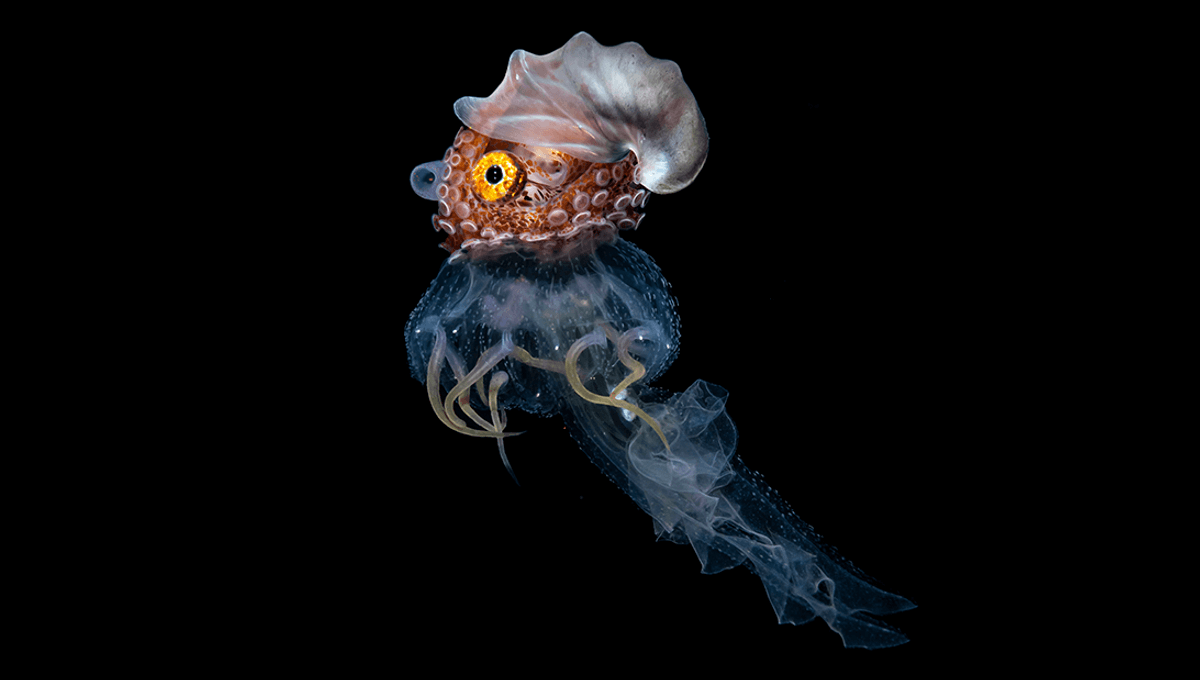
This article first appeared in Issue 16 of our free digital magazine CURIOUS.
The hitchhiker seen above, a female paper nautilus, is carrying precious cargo: an egg case that can house up to 170,000 eggs, which she’ll tote around until they hatch. The egg sac itself can act as a flotation device, but a jellyfish is the perfect ride because its stinging cells protect the nautilus and her many offspring from predation.
This photo was taken by Renee Capozzola, who scooped the Ocean Portfolio Award in Oceanographic magazine’s Ocean Photographer of the Year 2023.
“This image shows a female paper nautilus with egg case riding a small jellyfish and was shot with a 60mm macro lens during a blackwater dive in Anilao, Philippines,” Capozzola told Oceanographic.
“These unique cephalopods come up towards the surface at night to feed and aerate their eggs, and were mostly unknown to people except the local fishermen until blackwater diving became popular in the area.”
Subscribe to our newsletter and get every issue of CURIOUS delivered to your inbox free each month.
Jellyfish aren’t the only ocean residents that paper nautiluses attach themselves to either. According to Florida Atlantic University marine biologist Dr Chelsea Bennice, who goes by “Octo Girl” on social media, female paper nautiluses have been spotted “hitching-a-ride on jellyfishes, attached to floating seaweed, or attached to each other forming a “cephalo-chain” of up to 20-30 individuals.”
CURIOUS magazine is a digital magazine from IFLScience featuring interviews, experts, deep dives, fun facts, news, book excerpts, and much more. Issue 19 is out now.
Source Link: Paper Nautiluses Hitch A Ride On Jellyfish To Protect Their Eggs